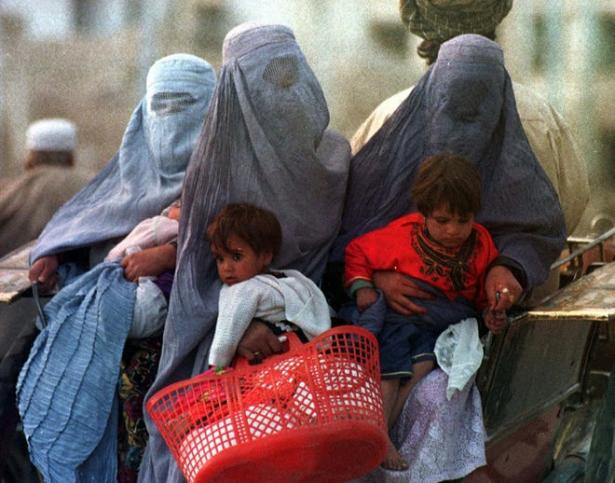Afghanistan Deal: Don't Trade Away Women's Rights to the Taliban. Put Us at the Table.
Afghan women are desperate for an end to the violence and a durable peace, but we fear that negotiators will trade away our rights for a deal. Just last week, in order to preserve its own negotiations with the Taliban, the United States signaled President Ashraf Ghani to delay his second-term inauguration, and he did.
How can we expect the Taliban and the warlords to treat us as equals when the lead negotiators have refused to give us a seat at the table? We know from previous experience that without a seated, elected, inclusive government based on the results of the elections, this peace deal will be little more than a division of power and resources among the Taliban, the warlords and the political strongmen.
Women and girls make up about half of the Afghan population, and 64% of the population is under the age of 25. A sustainable peace simply cannot be built without us.
On Sunday, more than 40 Afghan civil society organizations from across the country released an open letter calling for "an Afghan-owned, Afghan-led and Afghan-maintained peace."
Preserving all rights is nonnegotiable
They have advanced proposals to address the real issues that continue to drive the conflict, like inclusive governance, restorative justice, local grievances and refugees stranded across Europe. Their demands are clear: Elected representatives must lead the negotiations, the constitution must be preserved and efforts must be made to reduce violence across the entire country.
The new U.S.- Taliban agreement and the ensuing intra-Afghan negotiations must address our rights in specific terms, not broad generalizations. Preserving the constitutional rights of women and all Afghan citizens must be a nonnegotiable demand on the agenda of every political party and group.
Any peace deal, if it is to succeed, will have to include the protection of our human and civil rights, including freedom of speech and religion, the right to assembly, protection for our human rights defenders, and a mechanism of restorative justice for the hundreds of thousands of victims of this long war.
Afghan women are not asking anyone to grant us our rights. Our rights are clearly enshrined in our country’s constitution, our national laws, international law and sharia law. Our message to Mr. Haqqani and other Taliban negotiators is simple: Our rights are guaranteed, and we have a right to sit at any table you do.
Mary Akrami is director of Afghan Women’s Network and founder of the Afghan Women Skills Development Center. Sahar Halaimzai, an Afghan writer, advocate and human rights campaigner, leads the Afghan peace campaign Time4RealPeace. Rahela Sidiqi, founding director of Farkhunda Trust for Afghan Women's Education, is a former senior adviser of the Afghanistan Civil Service Commission and a senior social development adviser of the United Nations-Habitat Afghanistan.


Spread the word